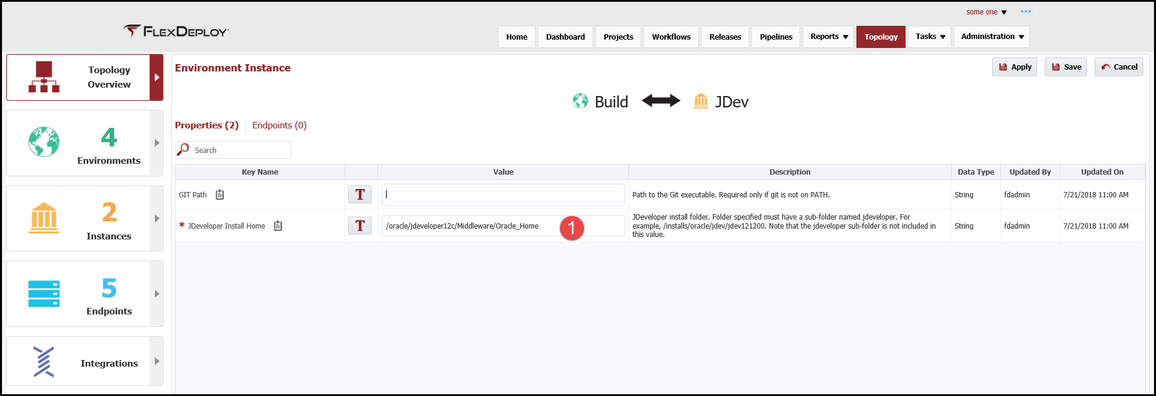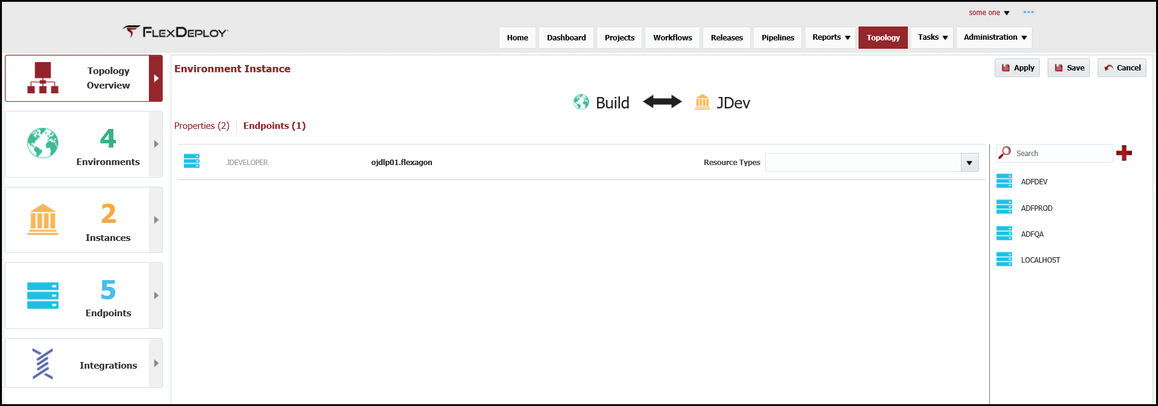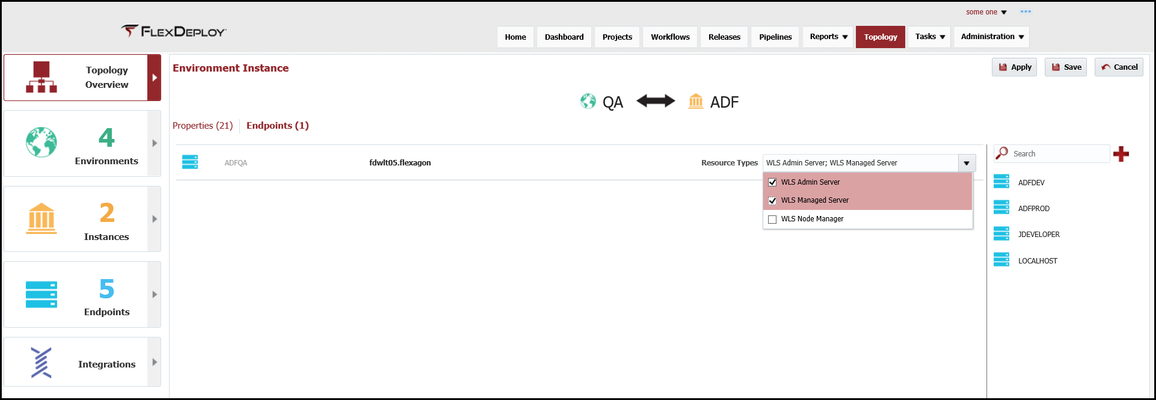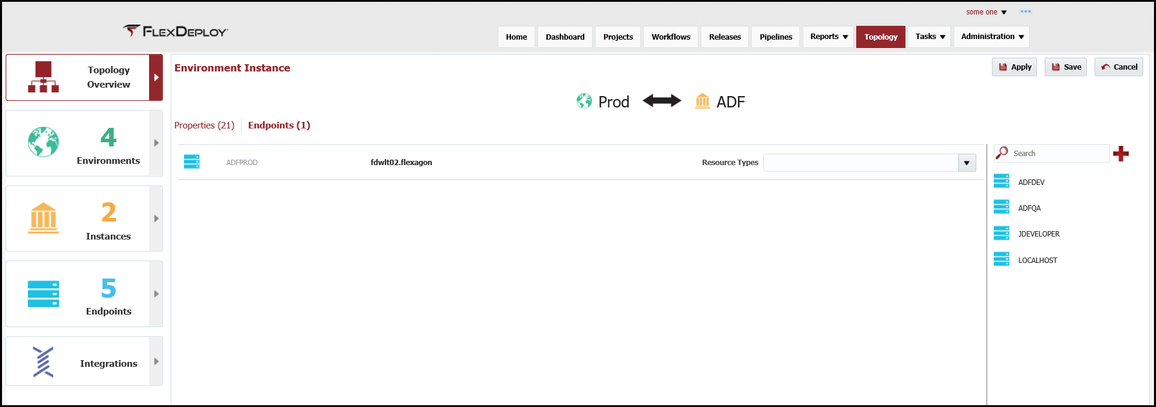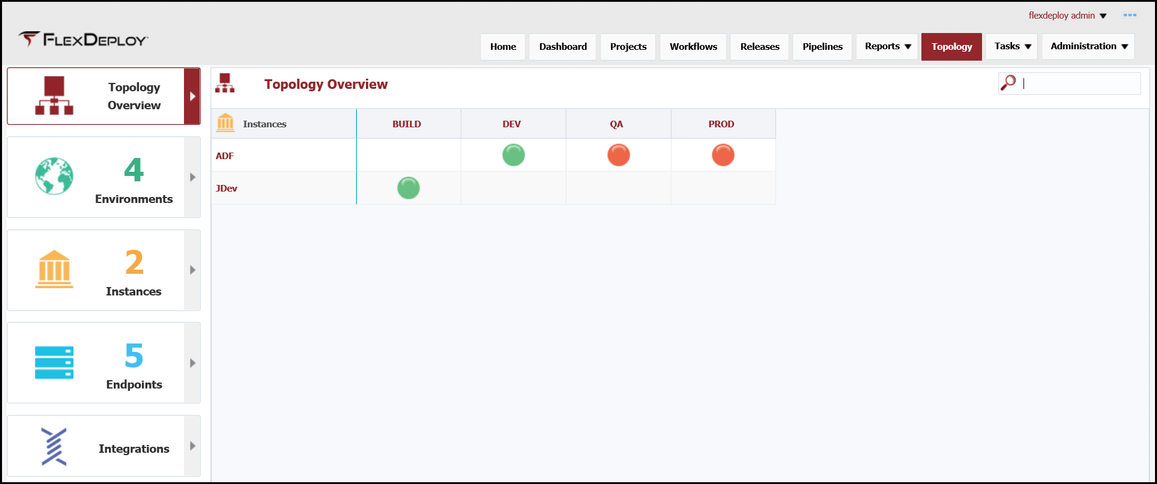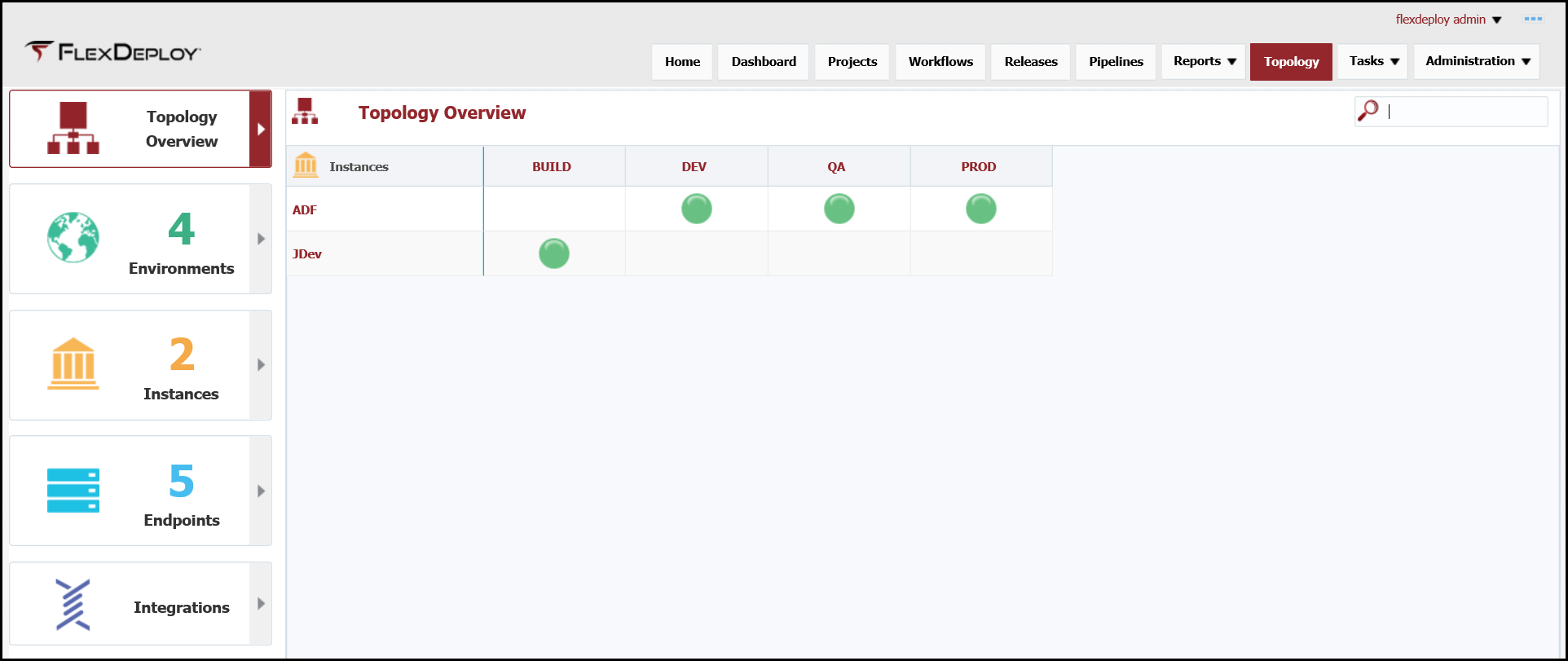At the completion of this section, you will:
- understand the concept of the Environment Instance in the deployment process
- be able to configure an Environment Instance
- understand the relationship between Environment Instance, Endpoints, Environments and Instances
An Environment Instance is simply an association of a single Environment with a single Instance. During the previous section of the tutorial, the Environments (BUILD, DEV, QA and PROD) were associated to the Technology Instances (JDEV, ADF) and this automatically generated four Environment Instances.
Based on the plugin operations that were used in the workflows, a set of Environment Instance scoped properties will be created. These Environment Instance scoped properties provide FlexDeploy with the necessary information to communicate with JDeveloper and the Weblogic server in each of the Environments. Generally, the Weblogic Server host (as an example) will be different between Environments and that needs to be captured by Environment so the deployment is executed on the correct server. For simplicity in this tutorial, all three Environment Instances will be configured with the same information and we will just utilize one Weblogic server.
In addition, we will associate an Endpoint to each Environment Instance to setup the base communication to the machine that is running JDeveloper and the Weblogic server.
Viewing the current list of Environment Instances is accomplished by selecting Topology from the menu and then selecting Topology Overview from the left menu. You will see a table that has Instances as the rows and Environments as the columns with colored circles representing the Environment Instances based on the environments selected for each instance. Color coding represents:
- RED - no required properties are set and/or the Endpoint is not configured
- YELLOW - some of the required properties are set and/or the Endpoint is not configured
- GREEN - all required properties are set and the Endpoint is configured
Selecting the RED circle for JDev/BUILD will display the configurable properties/Endpoint and allows for the configuration of the properties. Select Save.
Select the Endpoints tab and drag the appropriate Endpoint for this Environment Instance into the center pane. Select Save.
At the completion of the JDev/Build Environment Instance, the circle will be green.
Selecting the RED circle for ADF/DEV will display the configurable properties/Endpoint and allows for the configuration of the properties. Select Save.
Select the Endpoints tab and drag the appropriate Endpoint for this Environment Instance into the center pane. After dragging the endpoint over, select the appropriate Resource Types from the dropdown. Resource types allow the user to specify the type of resource that exists on an endpoint, such as WLS Admin Server so specific operations will be directed only to this server. Select Save.
At the completion of the ADF/Dev Environment Instance, the circle will be green.
For the purpose of the tutorial, all three ADF Environment Instances will be associated to the same Weblogic server. Configure QA and PROD Environment Instances the same as DEV. The Topology Overview should look like this at the completion of this section.
| Completed 7 of 11 Sections | Continue to GIT Instance Creation | Back to ADF Instance Creation |
|---|
